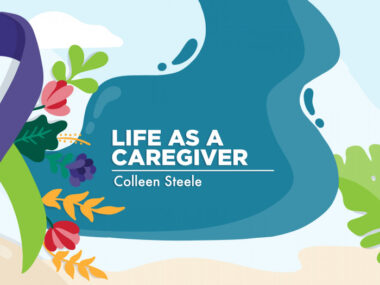Channeling the power of music as my anchor in life
Why I never enter the hospital without my headphones
Written by |

One day, when I was 15, I tagged along with my cousin and her partner to run a few errands. In the car, Ben Howard, an artist I’d never heard of, played on the CD player. Two songs later, I was hooked. I’d never heard music like his. When we got back to their house, my cousin’s partner burned me a copy to take with me.
I can still remember that fall, driving around my small town, listening to those same six tracks on repeat. Over the next formative season of my life, at college, my friends and I would continue to listen to his music as he released new work. We bonded over him and many similar musicians.
I still consider that day to be the start of my musical awakening, when I began to pursue music as something that existed outside of the Top 40 hits on the radio.
The heart of life
Since then, music has been an essential part of my life. It’s played a significant role in my social life and the way I connect with friends, but it has also served as a primary coping mechanism throughout my health journey.
I never enter a hospital or clinical setting without headphones in my pocket. Music is my favorite form of escapism, helping me drown out the surrounding environment and circumstances. When I’m an inpatient, I’ll even sleep with a playlist on repeat in my ears.
Following my heart-lung transplant in 2018, the first thing I was conscious of was the music that my sister always made sure I had access to, streaming from my phone to the headphones she would place in my ears for me.
It was a playlist my best friend made for me while I was in surgery, a collection of my favorites. In those first weeks, when I was completely delirious and so weak, incapable of sleep or sanity, the music was the only familiar thing keeping me grounded. It was as if I were floating in a black box, with the same songs on repeat acting as a lullaby over the speakers.
A little while later, when walking each day became imperative for my recovery, it was the music blasting in my headphones that encouraged my progress down the hospital hallway. It helped me strip away the voices, the beeping machines, and the discomfort of my unfamiliar body, all of which I detested. Instead, I recited the lyrics in my head, just enough distraction to keep me going another step. I made sure these songs were loud and angry, a mirror of how I felt.
Music hasn’t only served me through trauma. It’s also a prominent feature in my day-to-day. Sometimes it’s an outlet to process emotions I can’t entirely unravel. Other times, it’s a way to experience life in a way I otherwise wouldn’t be able to. On the better days, the right pop song is just a way to have a good time. In the way that some people enjoy going for a run, one of my favorite activities is driving in my car and singing along to songs I’ve heard an infinite number of times.
Some artists I’ve returned to throughout my life include Ben Howard, Florence and the Machine, and The Lumineers. I went through a bit of a stall in my pursuit of music in the past couple of years, relying on these old favorites.
Recently, I’ve fallen back into the interest of listening to new music, and it’s reminded me how much joy it brings me. Each song is like a short story to fall in love with. Waking up each day knowing I’ll get to listen to songs that mean something to me while I work or exercise is a beautiful way to keep me motivated and out of my own head.
Note: Pulmonary Hypertension News is strictly a news and information website about the disease. It does not provide medical advice, diagnosis, or treatment. This content is not intended to be a substitute for professional medical advice, diagnosis, or treatment. Always seek the advice of your physician or other qualified health provider with any questions you may have regarding a medical condition. Never disregard professional medical advice or delay in seeking it because of something you have read on this website. The opinions expressed in this column are not those of Pulmonary Hypertension News or its parent company, Bionews, and are intended to spark discussion about issues pertaining to pulmonary hypertension.





Leave a comment
Fill in the required fields to post. Your email address will not be published.